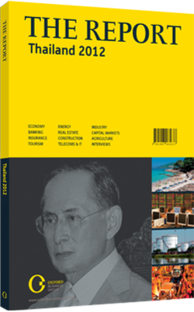OBG talks to Pailin Chuchottaworn, CEO, PTT Group

Interview: Pailin Chuchottaworn
What are your expectations for the next round of oil block bidding in 2012?
PAILIN CHUCHOTTAWORN: The previous block bidding round in February 2011 saw a few concessions granted – two of these were onshore in the north-east of Thailand. PTT Exploration and Production (PTTEP) is currently testing a well in the north-east, but the complex structure of the deposits, along with the high pressure and extreme depth of the drilling, make this process very challenging. However, if the results of the tests are positive and we identify a reasonable amount of hydrocarbons, then the next round of bidding in the second quarter of 2012 should be pretty active. Other companies will use PTTEP’s findings to ascertain the potential of the blocks.
Oil prices in the past six to seven years have been volatile, with prices going from $30 a barrel up to $140, and then back. As of early 2012 prices were about $100 a barrel. High oil prices allow some of the marginal fields to be developed, and we have seen a few firms in Thailand successfully make a profit from what were once very marginal fields. Thus, there are earnings and profits opportunities for independent oil companies both in the Gulf of Thailand and onshore, which is cheaper in terms of development costs.
In what ways is Thailand working to diversify the sources of its gas supplies?
PAILIN: Natural gas is the main fuel for power generation in Thailand, and a key raw material for petrochemicals. In 2011 we completed our liquefied natural gas (LNG) receiving terminal, which, in addition to the existing pipelines from domestic production and pipelines from Myanmar, will open the market to global gas supplies and help us meet our needs until 2015.
In that year the second phase of the terminal will begin, adding another 5m tonnes of capacity per year by means of minimal investments in extra storage tanks and the jetty. These upgrades will meet additional demand for another three to four years, after which time we will look at a second project for the terminal.
In terms of gas supplies, our upstream earnings and profits wing is developing the Zawtika gas field in Myanmar, which should come on-line sometime in 2013. Another strategy for meeting gas needs is to work with PTTEP on upstream LNG liquefaction.
We expect our consumption of LNG over the next seven years to grow from 1m tonnes per year to 10m, about 70% of which we will have to secure through long-term agreements. We have a few years to look into that, and will be working on integrated projects that link upstream investments to long-term supply contracts. We will then leave 20-30% as spot market purchases.
Furthermore, PTT is discussing LNG cooperation as part of the ASEAN Council on Petroleum, whose members include the 10 national oil companies of ASEAN member states. We once spoke of a trans-ASEAN gas pipeline network linking the region and creating flexibility in the supply of gas. Certain parts of this network have been finished, but to have a grand system is very difficult because Natuna gas is no longer available. Cooperation on LNG is feasible because there are both LNG producers (Indonesia, Malaysia and Brunei) and LNG importers (Thailand and Singapore) in the region.
What are the key drivers of PTT’s petrochemicals strategy after the merger?
PAILIN: Our strategy is now more than a matter of maximising value from our domestic resources of natural gas. We created PTT Global Chemical by merging PTT Chemical and PTT Aromatics and Refining in order to further expand both domestically and internationally. Our petrochemicals cracker, finished in 2010, can now run at full capacity and in 2011 we started a gas plant that produces feedstock for petrochemicals. Concerning chemicals, the key strategy will be high-value and high-margin speciality chemicals, and green chemicals like bioplastics and biochemicals. For this, we will work with technology owners from Japan, the US and Europe. We also agreed to acquire a stake in France’s Perstorp Holding to enter the polyurethane business.
You have reached the limit of premium articles you can view for free.
Choose from the options below to purchase print or digital editions of our Reports. You can also purchase a website subscription giving you unlimited access to all of our Reports online for 12 months.
If you have already purchased this Report or have a website subscription, please login to continue.

